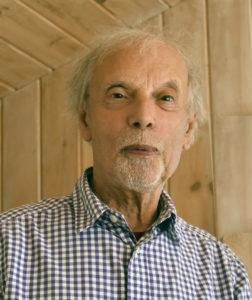
Otto Laske is a multidisciplinary consultant, coach, teacher, and scholar in the social sciences. His focus in both private and organizational venues is his clients’ emotional and cognitive potential for creative and imaginative work. His overriding strength is the capability to invite people to dialogue in trusting and thoughtful ways by unburying their internal dialogue with themselves on which their communication with others is based. As a consequence, he is a specialist in developmental interviewing and listening.
As Jan De Visch said in 2019:
Otto Laske has made it his life’s work to make people aware of the relationship between their thought forms and what it is they experience of the real and inner world. Becoming aware of different forms of thinking essentially creates an awareness of how you (often unconsciously) delete important aspects of reality, and how you can, by reflection, undo these deletions in order to become more adapted to, as well as critical of, reality.
As a coach, Laske’s central perspective is that every individual creates his or her own world that has to be respected and understood from the inside out. As an organizational consultant, he is guided by the notion that both organizations and the public sphere depend for their strength and flexibility on supporting people in their life-long endeavor to construct the real world in ever more realistic ways, by moving away from simplistic emotional and cognitive models of themselves and their world. He often strives to make clients aware of their own psychological profile (as far as he understands it) as a potential barrier against their own development as adults.
Otto is internationally known as a teacher and mentor of evidence-based developmental coaching comprising its social-emotional, cognitive, and psychological dimensions. He is still less known as a Critical Facilitator working with teams, and as an advisor to builders of Apps that are based on dialectical thinking in the framework of DTF, the Dialectical Thought Form Framework (2008). Since 2000, Otto has educated an international student body in a methodology of social- emotional and cognitive coaching called CDF (Constructive Developmental Framework) at the Interdevelopmental Institute, Gloucester, MA, USA (www.interdevelopmentals.org). He has successfully worked with teams since 2015, especially teams on their way to self-organization.
***
Grounded in Th. W. Adorno’s, Hegel’s, R. Bhaskar’s, and R. Kegan’s, work, the focus of Laske’s empirical and theoretical studies is to update Critical Theory in the direction of developmental thinking and listening through dialogue.
Laske has come a long way. He studied with the founders of Critical Theory (M. Horkheimer and Th. W. Adorno [1955-1966]), as well as with H. Simon, M. Minsky, R. Kegan, E. Jaques, and most recently R. Bhaskar. He is internationally known today as the Founder and Director of the Interdevelopmental Institute (IDM) where since 2000 he has taught a generation of international students – consultants, coaches, and managers – new tools for bringing about culture transformation in organizations and institutions.
As an associate professor of computer science and a consultant, in the 1980s Laske embraced artificial intelligence as a tool for creating collaborative intelligence in teams by building expert systems. In the 1990s, he deepened his knowledge of human functioning in organizations by studying clinical and developmental psychology at Harvard University’s Kohlberg School and William James College, Newton, MA (1992-1999). He proceeded to establish the scholarly and pragmatic foundations of evidence-based developmental consulting and coaching by creating CDF, the Constructive Developmental Framework (https://en.wikipedia.org/wiki/Constructive_developmental_framework).
After 2000, Otto deepened his understanding of how people mature as adults, both in life and work. He did so on the basis of strictly distinguishing between horizontal learning and vertical development, and within the latter between social-emotional meaning-making and cognitive sense-making (dialectical thinking). In following Jaques and Bhaskar, Laske forged cutting-edge tools and practices for establishing and scaffolding deliberately developmental organizations which he has employed in his work as a consultant/coach in the U.S., Canada, Europe, and South-America.
More recently, Otto has published his thoughts on optimal ways of teaching dialectical thinking, an art and science that is still very little understood, even among his own students (see Blogs).